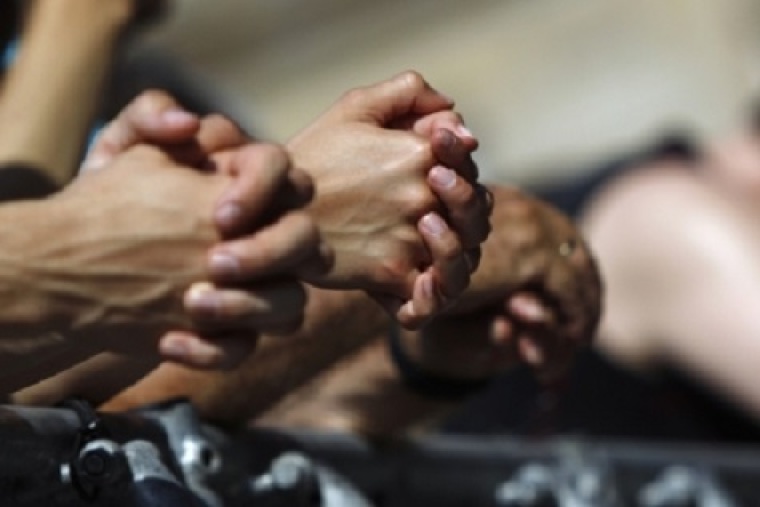

Twenty-four Azerbaijani Christians have been told they will be fined at least 1,500 Azerbaijani Manats ($850) each for participating in an "illegal" prayer meeting at a church leader's home.
All 30 attendees were initially arrested when a dozen policemen interrupted the meeting on the morning of 27 November at the house of Gamid and Ginayat Shabanov in Aliabad, a village in the south of the country.
The 30 Christians were each questioned and had their names and passport details logged. Police also took an inventory of all Christian literature in the house.
Twenty-six of them were then taken to the police station. Twenty-two were released later that evening, but four were detained overnight, including the Shabanovs and another church leader, Mehman Agamemedov.
They were released the following day, but warned not to hold another meeting, and 24 of them were told they would be fined.
"Each of you may pray in your own house, but meetings are forbidden, otherwise you will be arrested again – with more serious consequences than a fine," the police told them, according to a World Watch Monitor source.
Their arrests were reported on national television, although they were not identified specifically as "Christians", but instead said to have been arrested "for illegal religious activities" and "spreading illegal religious doctrines".
"It sounds like we are some kind of sect!" Agamemedov told the WWM source.
Religious meetings in private homes are prohibited under Azerbaijani law, which states that only registered religious organisations can hold prayer or worship meetings
The potential punishment for "illegal religious activity" is a fine for a first offence and a prison term for repeat offenders.
Background
When Azerbaijan hosted the European Games last year, Amnesty International said its authorities "would certainly be on the medal winning podium if prizes were on offer for the number of activists and rights defenders behind bars".
Azerbaijan is ranked No. 34 on Open Doors' 2016 World Watch List, which ranks the 50 countries in which it is most difficult to be a Christian. Although the constitution is relatively flexible towards Christians, frequent amendments and subjective interpretations of the law cause problems.
Registered churches are subjected to regular and obligatory re-registration, and each time fewer churches register, choosing instead to go underground.
The regime is very protective of its reputation, often inviting foreign officials and human rights organisations, but foreigners are not allowed to visit unregistered churches.
Hefty fines are handed out for possession of religious literature or unregistered activities. Infiltration of churches and short prison sentences are also used to fuel suspicions and infighting.
"The government has a negative attitude towards any form of religious fanaticism," according to Open Doors. "This also applies to the attitude towards Christians. Official checks are becoming increasingly strict. The government has become more active in controlling religion."
Open Doors International estimates there were 6,000 Christians in Azerbaijan in 1997, and that this number had "at least tripled" by 2014.
However, it adds, "it is a constant challenge for pastors to endure the efforts by authorities to undermine their work".
Courtesy of World Watch Monitor